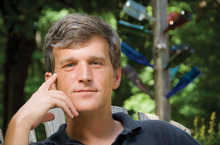 Q (Nicolle Elizabeth): Hey Matt. How is Australia?
Q (Nicolle Elizabeth): Hey Matt. How is Australia?
A (Matt Potter): Summer. Though the weather is variable. The big heat will kick in, in the new year, as it always does. Christmas Day is usually warm in Adelaide, but not hot.
Q: Do you need to wear a lot of suntan lotion or is the ozone layer we humans have upset back yet?
A: I never wear suntan lotion, but I stay out of the sun. I like it sunny … so I can sit in the shade. I don’t believe the ozone layer is any better.
Q: What exactly is ‘the outback’ like?
A: I have no idea, having never been there. Like most Australians, I live in a city. I have little interest in the Outback. That’s what Oprah and other hysterical tourists like to visit.
Q: Have you ever worn a safari hat?
A: I have worn many hats and own dozens, but never a safari hat. I am unsure what exactly you mean by a safari hat, now that I think about it, but if it is what I imagine it to be, it’s not that attractive. So no, I wouldn’t wear one anyway!
Q: Is it true that koalas, while adorable, are actually horrendously mean-spirited?
A: They do have a low-pitched murmuring growl, and if you can hear that while patting one, I suggest you stop patting it. They have claws.
Q: Have you ever fought a koala?
A: Once, in my short-lived porn career.
Q: One time, on a surf trip on the North Shore of Hawaii, I met a dude from Australia who told me that Australians have a long-standing feud with Kiwis (people from New Zealand). Is this like a Yankees vs. Red Sox thing or like a heavier than that thing?
A: You would have met a “bloke” from Australia, not a “dude”. There are half a million New Zealanders living in Australia, so as to the feud? No, not really, though the television they produce is worse than even ours. We have similar accents but New Zealanders have an even flatter ‘i’ sound on words like ‘six’ and ‘fish and chips’, which Australians make fun of at times. (‘Six’ can sound like ‘sex’ or ‘sux’ with New Zealanders.) You could joke that Australia is the arse (not ‘ass’) end of the world, and New Zealand is the sphincter. Perhaps the problem lies there …
As to the Red Sox Yankees deal, isn’t that baseball? If so, then I know even less about that than the Outback.
Q: Wait, doesn’t the water in your dish drain flow in the opposite direction from mine on the US Eastern Seaboard? Coooooooooooooool.
A: It’s a hemispherical thing.
Q: What is Pure Slush?
A: Pure Slush is a flash fiction website I started recently. The tagline is ‘flash … without the wank’. If you want to know all about wank, look up the explanation on the site: http://pureslush.webs.com/slushwank.htm
Q: Why did you start it?
A: It was really more a question of ‘when’, not ‘if’. I like to take on new projects and I thought, well, if others do it, I can too. I thought about it for four weeks or so, and then when the name came to me during a rainstorm, I knew I had the impetus to move ahead with it. So once the name was chosen, the rest followed very quickly, and the first story went on-line two days later, Susan Gibb’s “Black Bears and Green Broccoli Trees.” Stories for the first month – I asked writers whose work I knew and admired – were quickly gathered together. It was very quick but also very thorough.
I also wanted a non-north American voice out there in Flashland. Plus, I wanted to bring some politeness back into the whole submission / rejection equation. I resent receiving rejection emails and letters with no explanation as to why beyond the usual ‘your story is not for us’. And I thought, here is a way I can redress that, if only slightly. I hope my idea about this is not ridiculous and I can always explain why I am (or Pure Slush is) saying no, and also why we are saying yes … and here are our suggestions for changes! Most writers whose work I have edited, loved receiving that attention and yes, it made their work better. Just before I started Pure Slush, I asked a flash site, after three rejections in a very short time, what it is they’re looking for, after being told the usual ‘this is not what we’re looking for’. (The site has quite publicly asked for contributions all over the flash world.) I am still awaiting David’s reply.
I do think some site editors don’t like or distrust ‘funny’ too.
And finally, I am interested in clear communication. Clever language can get in the way of communication at times. Frankly, some of it’s just wank. I think Australians have a well-deserved reputation for a low tolerance of bullshit, and the Wank-o-Meter is always on at Pure Slush.
Q: What is Pure Slush’s thing, Matt, what is the deal with Pure Slush?
A: Fun, humour, attention, absurdity, humanity, love, sex, more fun and more humour and more absurd humanity. (Wank, wank!) Stories big and small, but not too big, hence the 500 word limit. Maybe some posturing, but definitely not macho posturing, which happens a bit in the flash world, all those testosterone-infused keyboards! We may start some non-fiction too, that might be fun. Plus, we don’t change the spelling. If it’s British or American or South African or Canadian or Australian spelling you use, then we run with it. So readers can expect Australian spelling in the editorial blurbs, because I write them.
Q: 100-500 words, you say? I’m into it. Who are some flash writers Pure Slush admires and why?
A: I love having people ‘fave’ my stories on Fictionaut but can claim to have only done the same very few times, as much due to a lack of commitment as anything. But I also want that click to really mean something. I admire clear story-telling, and usually writers who make me laugh, especially out loud, but also those stories that are funny but human. Stories about sex usually get my vote too! Michelle Elvy’s stories I recently described as “so fucking sad and gorgeous,” which she loved. (It’s also true.) Robert Vaughan’s stories at times remind me of looser versions of my own – we both don’t shy away from dialogue, which I believe many flashers do. I hesitate to name any more because I am reading new-to-me writers all the time. (That is one of the things about Pure Slush so far, the submissions have really been of a high standard.) But I have to now mention Marcus Speh, because I met Marcus when I was last living in Berlin, we were part of the same great writing group, and through him I entered the online world of flash which really turned things around for me. So Marcus, natürlich! He laughed – genuinely – in all the right places at my stories, and I was lucky to have found his stories as equally amusing and inviting.
Other flash writers who have been very supportive of my work and whose work I often admire also are Susan Gibb, Linda Simoni-Wastila, Catherine Russell, Al McDermid and John Wentworth Chapin – through ‘52 / 250′ particularly – and Berlin writer-friends Claudia Bierschenk and Luisa Brenta, for exactly the same reasons.
But the first story I read that made me think Fuck! I wish I had written that! was Susan Tepper’s “Stickers.” It was a benchmark for me. I still re-read it and feel jealous that she wrote that story before I did. And of course I have read many of her stories since, and loved them.
Q: Take one story from one writer mentioned on this admiration list and cut and paste the story or a part of the story for us here, and break down why exactly Pure Slush likes this story. We’ll look at this as Matt Potter gives us a brief fiction lecture but doesn’t get any money for doing it.
A: “Stickers,” by Susan Tepper
So my sister hooks me up with this girl who just got out of the looney bin. I’m not shitting you. Lucinda, the girl’s name. A situation straight out of a horror movie. Except my sister says she’s a very cool girl who got screwed by life.
Anyways … we make a plan to wear red T-shirts and meet near the sign outside Chuckie Cheese.
And she’s not bad from a distance, her blonde hair in a perky pony. I wave and she waves. But then we get close and she’s got these little stickers stuck to her face. A few on her cheeks and three lined up across her forehead.
I’m reading some really small letters and numbers on them. I’m wondering if they’re passes to get in and out of the looney bin – like they stamp your arm to get in a club.
She looks straight through me. “Fruit stickers, William, if you must know.”
“What?”
She taps her forehead reciting: “Lemon from Chile, Sun World Black Plum, 4038 California avocado.”
“You wear fruit stickers on your face?”
Lucinda smiles beatifically. “I only eat fruits and vegetables.”
I scratch under my T-shirt cursing my sister for setting me up with this sticker chick freak.
“Um. Do you think you could peel them off for the movie?”
She squints. “Why should I?”
It is a good question. I’ll give her that.
She’s waiting; her face looks hungry.
“I believe in meat,” I say.
I started to break this down but grew bored, it’s better to look at it as a whole. Or Skype me and I will tell you. I love the way the narration sounds so real and spoken, and that the relationship is doomed because they wear the same t-shirts AND meet outside Chuckie Cheese. You can’t get more hopeless than that, unisex clothing and something as bad sounding as Chuckie Cheese. The narrator sounds not such a great personality and the woman seems completely in her own world. She looks OK but soon, the ridiculous stickers – a barrier to intimacy with anyone – become the focal point of their interaction. They will never move past them. The woman’s logic is wonderful – “Why should I behave like you want me to, even if we are on a date?” – and then the amazing punchline! Who says things like that? Only people on the edge. This story as it unfolds is all so absurd and hilarious but also so real. They are people I love to read about, obsessive nutjobs, though not to meet: I love obsessions and hysteria in fiction, and write about them a lot myself.
Q: Please tell us more about you, your own work, and anything else you’d like us to know here.
A: I’ve ‘written’ since I was 12, so for almost 33 years. I have a partner who has two daughters, and also two grandchildren (2 and 3) whom I simply adore. I have hardly written about them but my partner is an infrequent presence in my work. Like many people, I get ideas from all sorts of things, often NOT my life. I find it difficult not to write comic stories, and I have an eye and an ear for the absurd. My writing is often cinematic, but I was also a film school student and made a number of short films, so that fits. I enjoy writing dialogue and hearing someone say something absurd or stupid will often trigger a story idea. I have a variety of qualifications and experiences to my name – my CV is very comprehensive – and at the moment am teaching English to refugees in Australia. I always ask my students in Australia (I have also taught English in Germany) what sort of English do they think I will be teaching them, and one of them eventually says “Australian English,” and I usually answer “Beeeewdiful.”
I also have a great mistrust of most forms of patriotism, Australian included.
Q: Did you know that there is a street and subway stop in Brooklyn New York named after your Mount Kosciuszko?
A: No, but I am sure they are named not after the mountain, but the man the mountain is also named after.
Nicolle Elizabeth checks in with Fictionaut Groups every Friday.
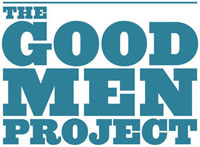 Matthew Salesses
Matthew Salesses
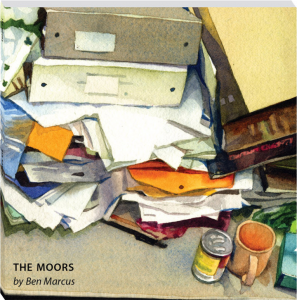
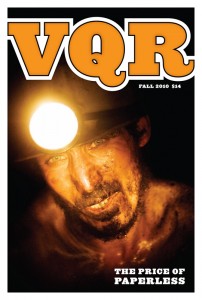

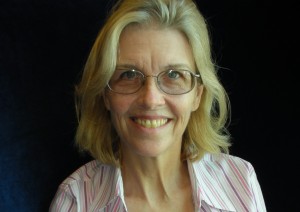

 Daniel Handler
Daniel Handler